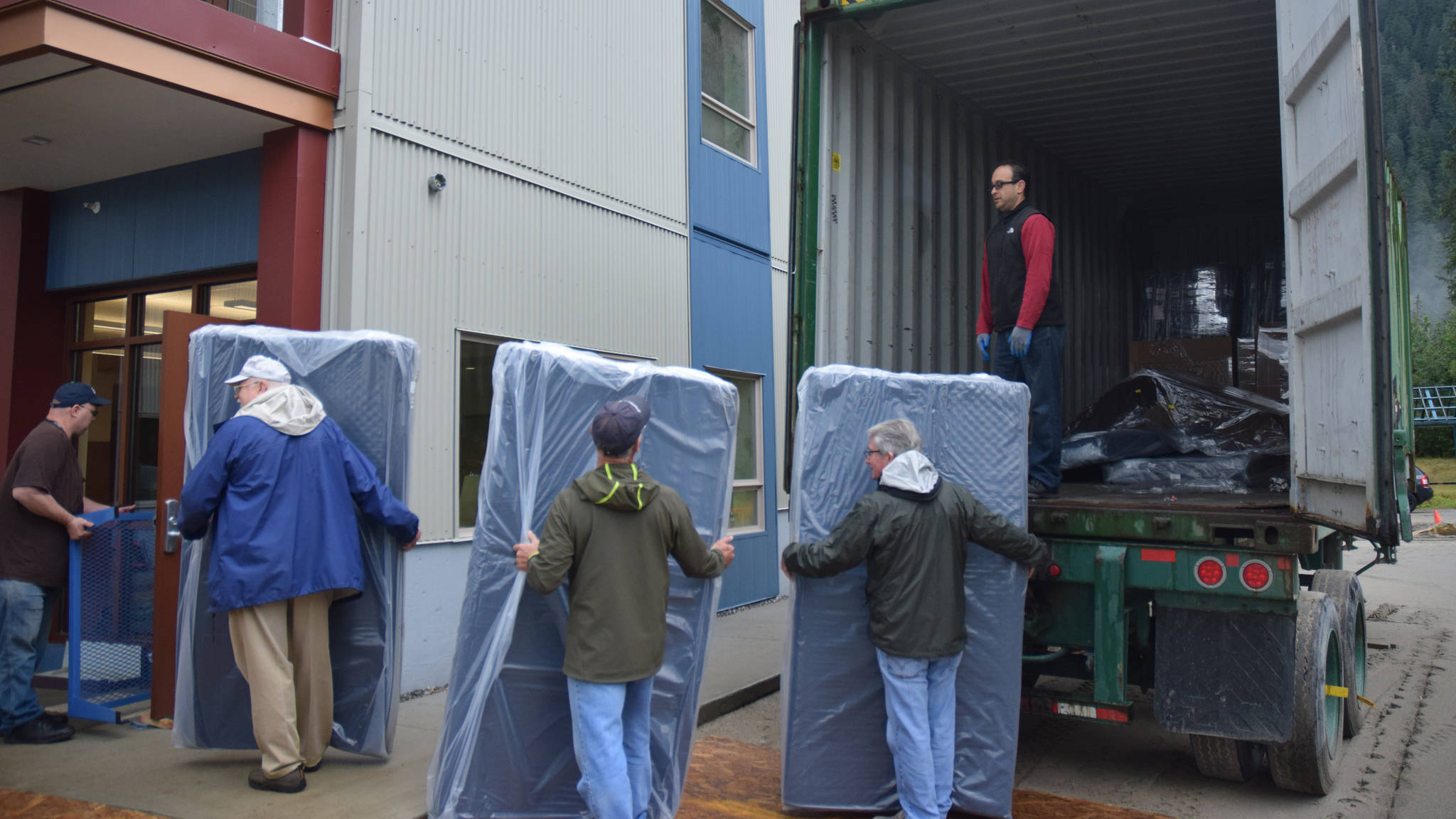Fifty-seven volunteers helped 32 of Juneau’s homeless come a bit closer to finding long-term housing on Saturday.
In an all-hands-on-deck effort, members of Juneau’s four Rotary International clubs and Rotaract moved in 32 donated beds to Juneau Housing First, a nonprofit set to provide shelter to Juneau’s chronic inebriates when it open doors in September.
Dozens of Rotary volunteers from Glacier Valley Rotary, Juneau Gastineau Rotary, Latitude 58 Innovators, Rotary Club of Juneau and Juneau Rotaract Club joined forces to install the 32 twin mattresses with metal frames in the building’s new studio apartment units.
Bridget Lujan, the President of the Rotary Club of Juneau, said there was little doubt the clubs would focus on homelessness this year given the instability of housing in the capital city.
“I think it was important that we were addressing something specific to Juneau,” Lujan said. “When the four presidents got together, it was kind of a no-brainer that we wanted to do something addressing the homeless.”
Juneau’s rate of homelessness is the worst in the state at more than six without shelter per 1,000 residents. Chronic inebriates are one of the most vulnerable populations to become homeless. Juneau Housing First does not require sobriety for entrance.
The clubs paid for the beds with a $25,000 fundraising effort, which utilized a matching grant from Rotary District 5010 of Alaska and the Yukon Territory. Housing First will provide stable housing for 32 of Juneau’s most vulnerable, many of them chronic inebriates ineligible for housing services elsewhere.
Before fundraising for the beds started, Glacier Valley Rotary President and City and Borough of Juneau Assembly member Beth Weldon approached Housing First board member Bruce Denton to ask what they needed. Housing First has found funding from a patchwork of sources, but Denton said they still needed beds.
“It’s huge. We’ve been scrambling to put this thing together with lots and lots of sources of funding,” Denton said. “Not only the monetary part of it but just the community involvement, getting everybody to understand what this thing is all about and what it’s going to do for the folks that live here.”
The effort has in the works since Rotary presidents traveled to a conference in December. At the time, the CBJ Assembly was considering a controversial ordinance to ban camping in business alcoves in the downtown area, an issue that brought Juneau’s rising rate of homelessness to the forefront.
“It was in the middle of the winter, so we thought we would do something for the homeless,” Weldon said. “This is the first time all of us have gotten together on a project.”
Correction: An earlier version of this article stated that most shelters in the capital city require sobriety. It should be noted the Glory Hole, Juneau’s soup kitchen and homeless shelter on South Franklin Street, does not require sobriety — it has a policy that forbids accepting patrons with a blood alcohol level above 0.10 percent.
• Contact reporter Kevin Gullufsen at 523-2228 or kevin.gullufsen@juneauempire.com.

